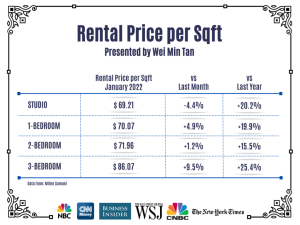Introduction
In an era of skyrocketing rents and housing crises, the quest for affordable rental housing has reached a critical juncture. Rent prices in many urban areas have surged to unmanageable levels, leaving countless individuals and families struggling to secure suitable accommodations. In this article, we will investigate the promising solution of Rights of First Refusal (ROFR) and how they can potentially contribute to reducing rental costs, thus improving housing affordability. By empowering tenants, stabilizing rents, and fostering a more secure living environment, ROFR might just be the key to tackling the housing affordability challenge.
Demystifying Rights of First Refusal
Rights of First Refusal (ROFR) are legal instruments that grant current tenants the initial opportunity to purchase the property they are renting if the landlord decides to sell. This unique legal provision gives tenants a critical advantage by allowing them to secure their homes at a price they can afford, effectively shielding them from the uncertainty of displacement caused by escalating rents or property sales.
ROFR is typically included in a tenant’s lease agreement, establishing a binding obligation for the landlord to extend the offer to the tenant before entertaining any external purchase offers. If the tenant opts not to purchase the property, the landlord can then proceed with the sale to an external buyer.
Key Features of Rights of First Refusal
- Protection from Sudden Displacement: ROFR provides tenants with housing stability, reducing the risk of abrupt eviction due to property sales.
- Affordable Housing: It helps maintain housing affordability by enabling tenants to buy the property at an agreed-upon price specified in the lease, even if the market value of the property has appreciated.
- Empowering Tenants: ROFR empowers tenants by offering them the opportunity to become homeowners, thereby facilitating wealth accumulation and financial security.
Can ROFR Make a Difference in Reducing Rental Costs?
Preserving Affordable Housing Units
One of the most significant ways ROFR can lower rental costs is by preserving affordable housing units. When rental properties change ownership, new owners might drastically raise rents, leading to the displacement of long-term tenants who can no longer afford the increased rates. ROFR mitigates this issue by allowing tenants to purchase the property at a price agreed upon in the lease, effectively safeguarding affordable housing units.

Stabilizing Rent Prices
The mere existence of ROFR can serve as a deterrent for landlords looking to substantially hike rent prices. Knowing that tenants have the option to purchase the property, landlords are less likely to engage in aggressive rent increases. This helps to stabilize rent prices over the long term, promoting affordability for current and future tenants.
Empowering Tenants Financially
ROFR gives tenants the opportunity to build wealth through homeownership. By purchasing the property they rent, tenants can accumulate equity and establish a secure housing situation, ultimately reducing the financial burden associated with renting. This financial empowerment has a profound impact on tenants’ financial security and overall well-being.
Real-Life Impact
Case Study: San Francisco, California
San Francisco, a city notorious for high rental costs, has successfully implemented ROFR policies in certain multi-unit buildings. This initiative has provided tenants with the first opportunity to purchase their apartments when landlords decide to sell. As a result, thousands of tenants in San Francisco have been able to secure their rental units and maintain affordable living arrangements.
Conclusion
Rights of First Refusal (ROFR) hold the potential to be a game-changer in the quest to lower rent prices and increase housing affordability. By empowering tenants, stabilizing rents, and fostering a more secure living environment, ROFR can play a crucial role in alleviating the housing affordability crisis. Implementing ROFR not only benefits tenants but also contributes to the overall well-being of communities by reducing displacement, promoting rent stability, and empowering individuals and families to become homeowners. In the ongoing battle for affordable rental housing, ROFR may indeed be the catalyst needed to make a significant and positive difference.










